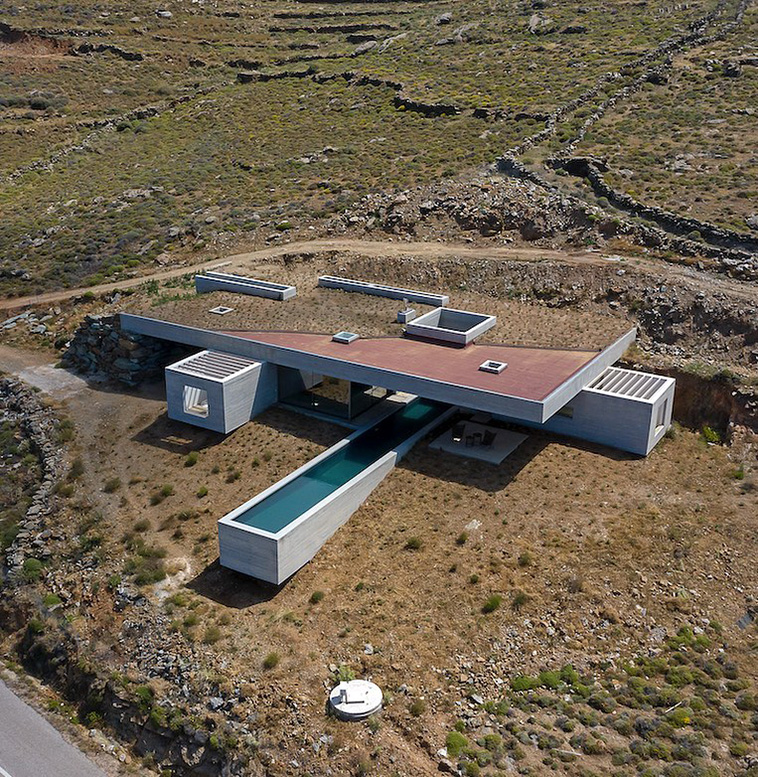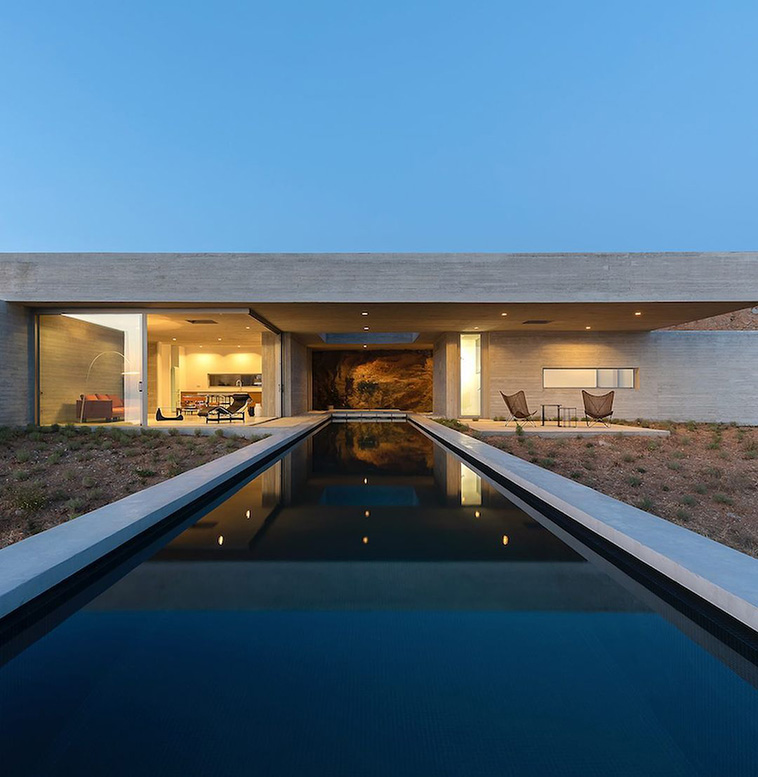Here are some of the most impressive examples of landscape-integrated architecture projects around the world
Ncaved House, Greece
Inserted into the cliffside, the dwelling seems to hover just above the sea. The design team introduces a shelter protected from the strong northern winds without obstructing the rolling landscape and sweeping horizon. The dwelling thus exists without an exterior form, but as a series of occupiable volumes subtracted from the earth.
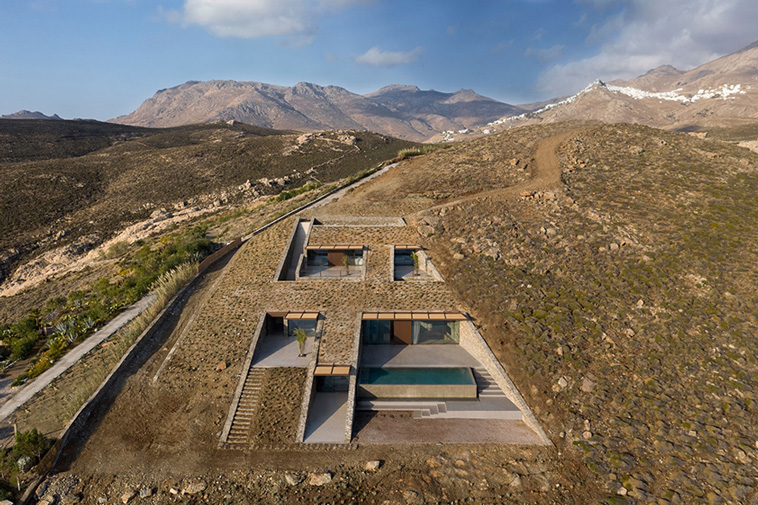
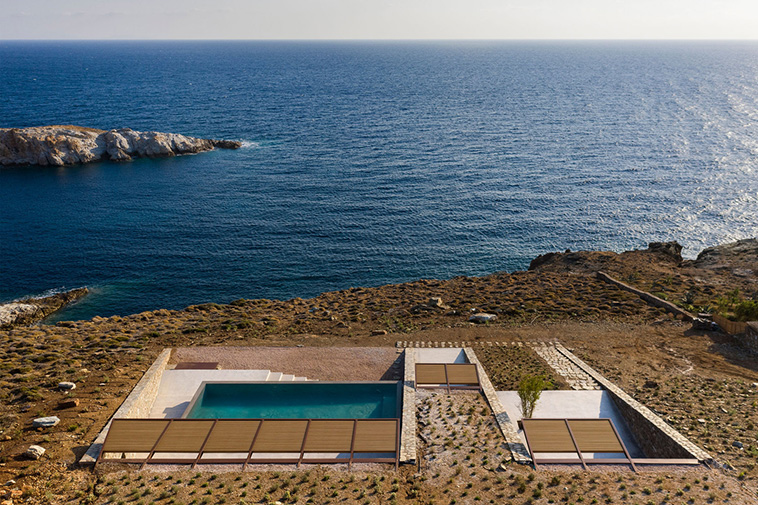
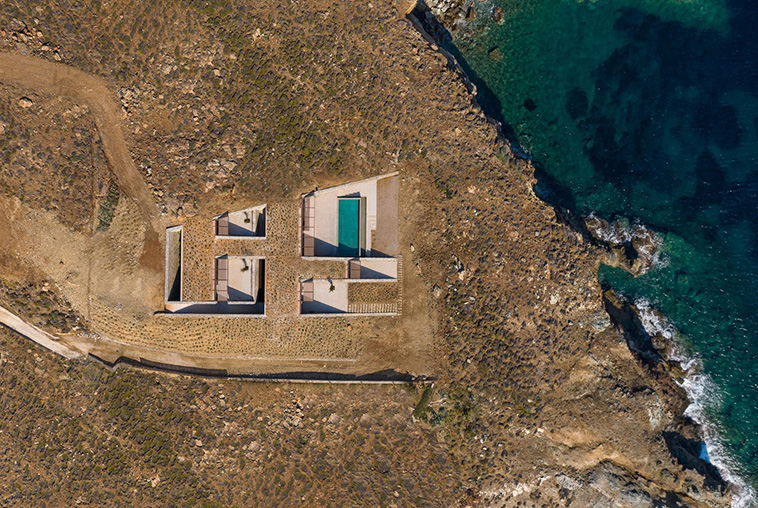
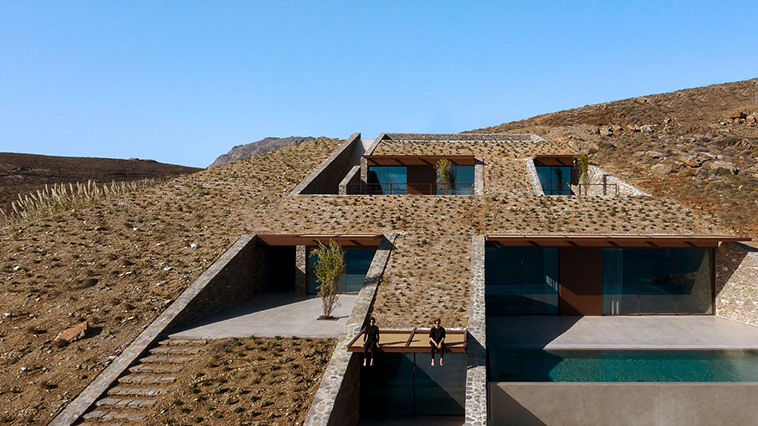
Casa Katana in Crete, Greece by Konstantinos Stathopoulos / KRAK. architects
A crooked line is carved in the Southern Cretan scenery. In the Southern part of Crete is designed by Konstantinos Stathopoulos the unique leisure residence Casa Katana.
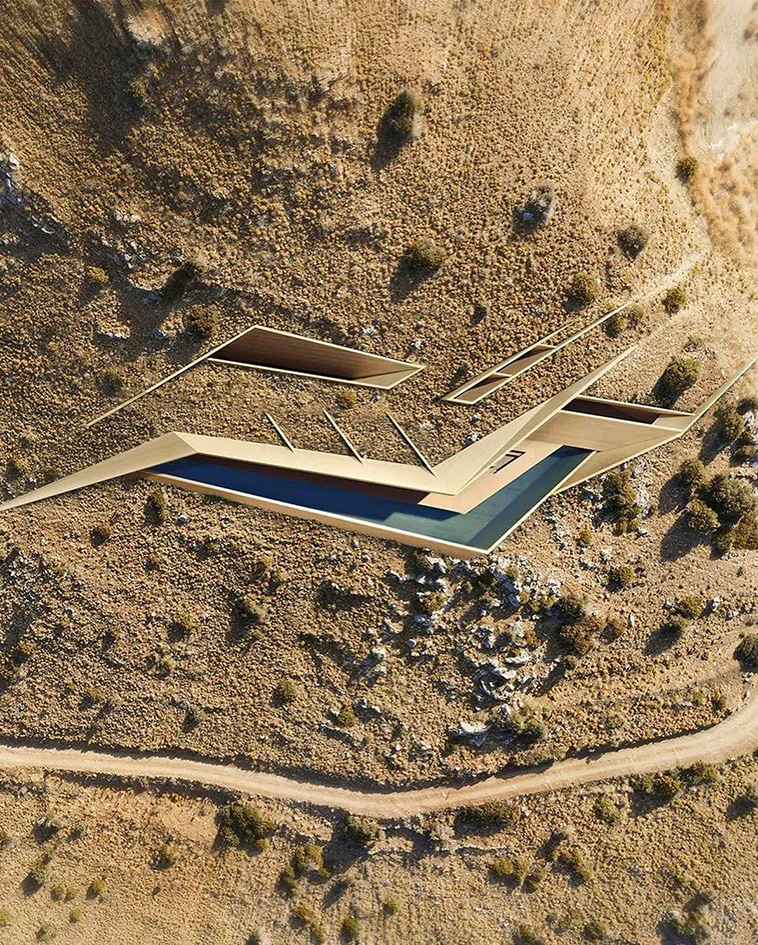
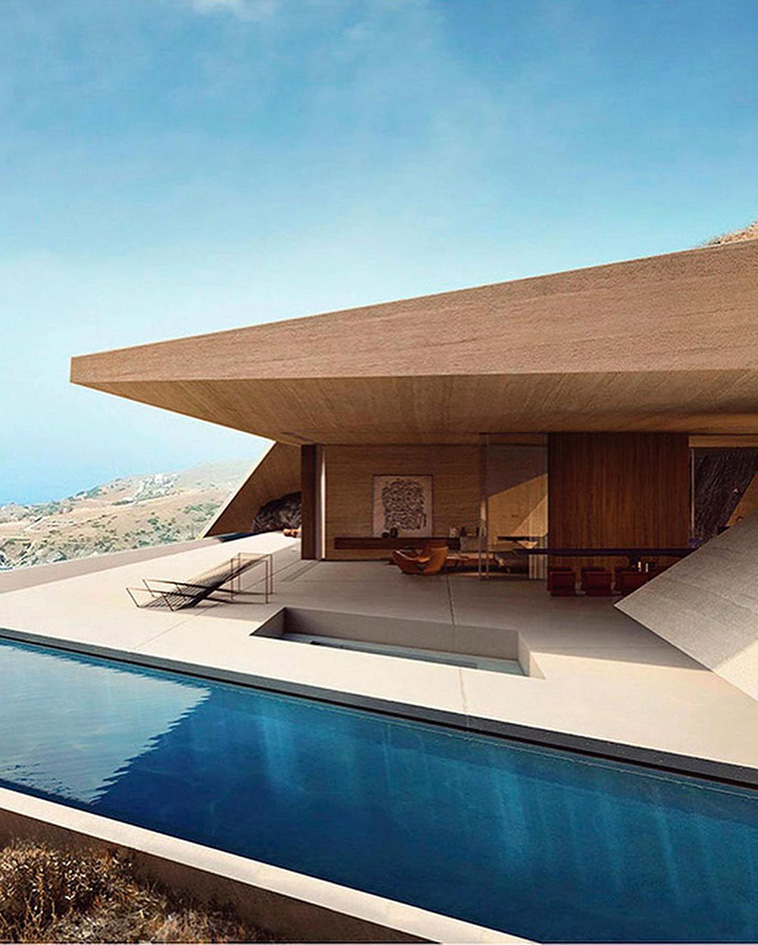
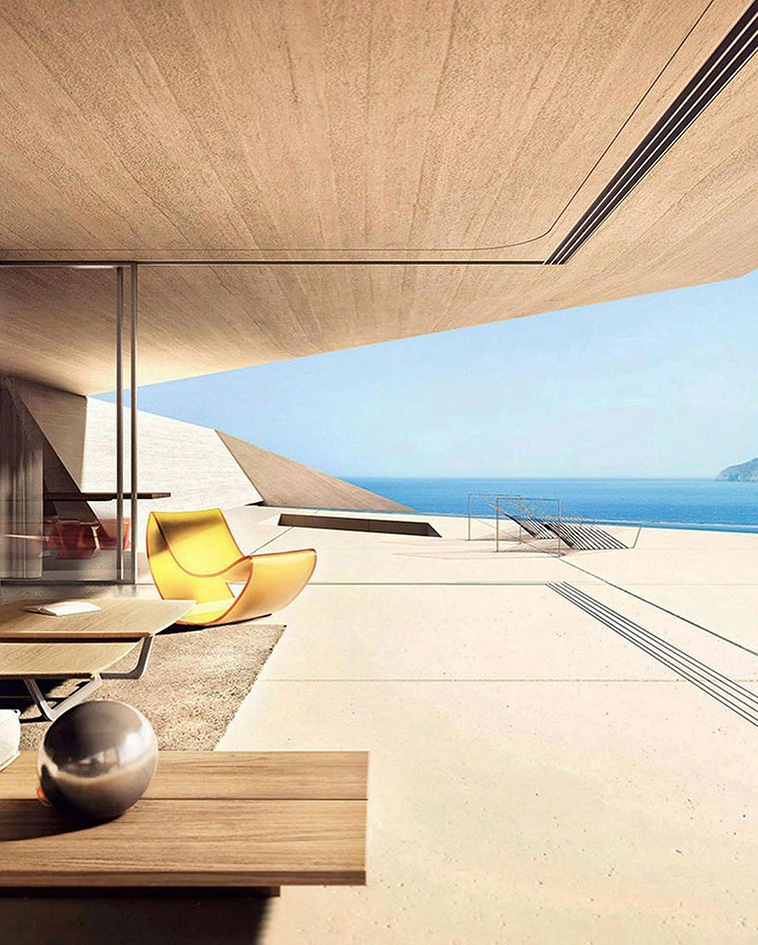
Subterranean Private Villa in Antiparos, Greece
This remarkable multi-level vacation house designed by Tsolakis Architects occupies a steep, rocky slope on Greece’s Antiparos island, its subterranean volumes announced by alternating façades of stone and white-washed walls that wholly embrace the region’s traditional Cycladic architecture. From the uppermost level, visitors are led from the sleeping quarters down to the social areas via a series of outdoor staircases connecting the different levels.
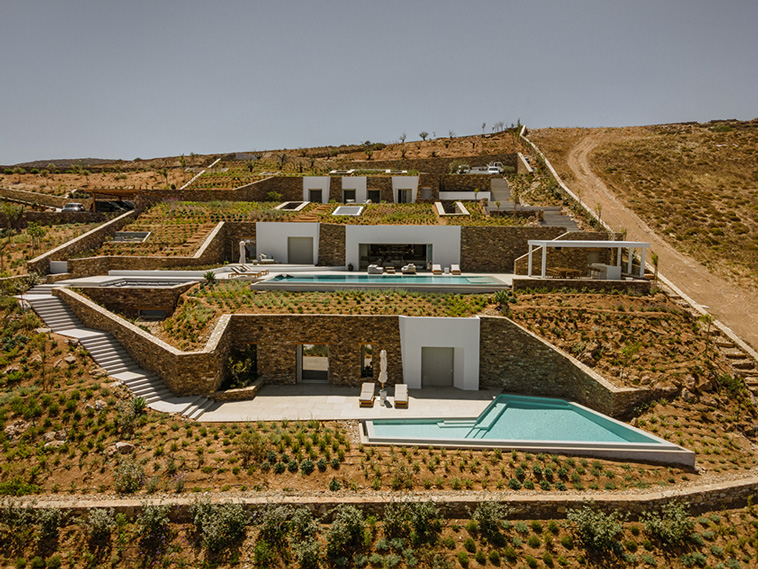
Aguacates House, Mexico
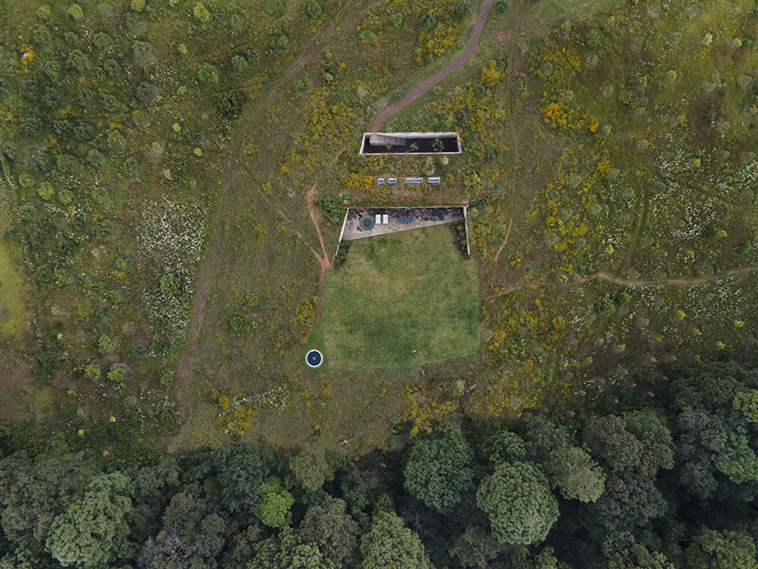
Aloni House, Greece
The site is a natural saddle where two slopes meet. In the North-South axis, the slope rises between two hills while in the East-West axis the slope drops, opening to the sea views. Two long stone walls bridge the hills allowing the house to nestle in the space within while maintaining the continuity of the landscape which flows over it. This simple strategy blurs the edges of the house and makes its mass imperceptible within the broader skyline of the island. The name of the house itself, Aloni, refers to the remains of a crop-harvesting circle that was found and preserved as part of the agricultural past of the site.
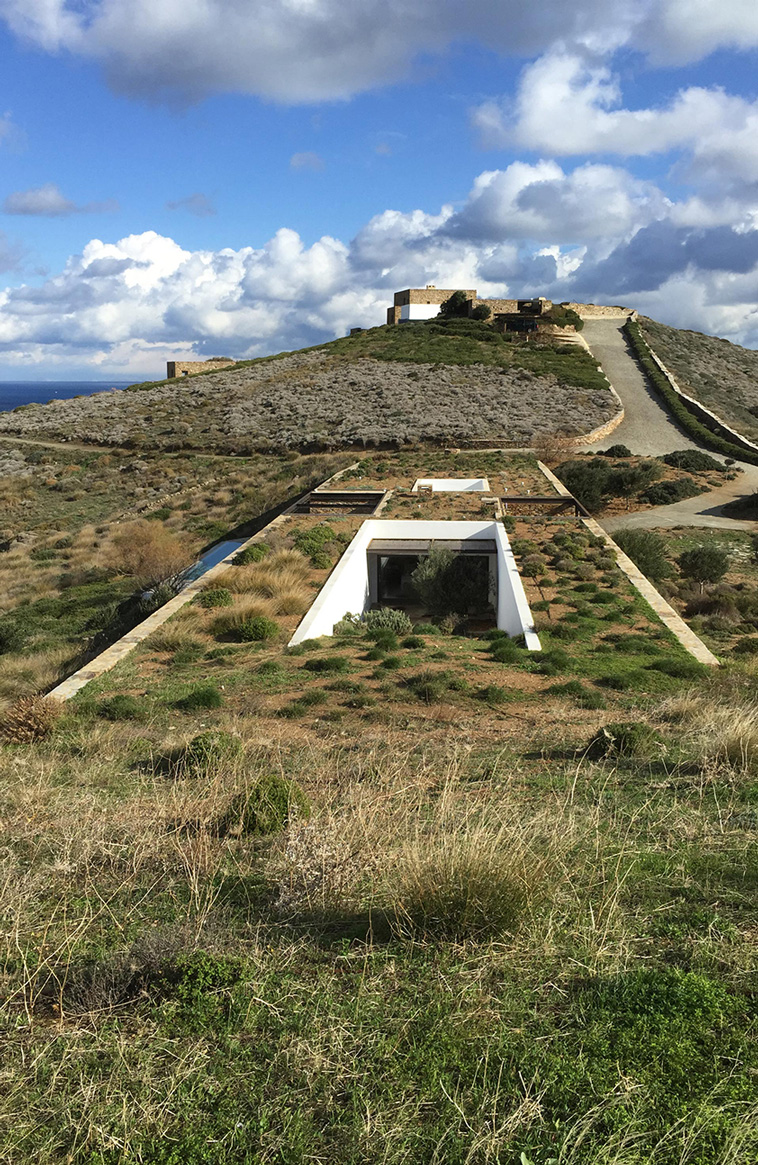
The Ring House, Greece
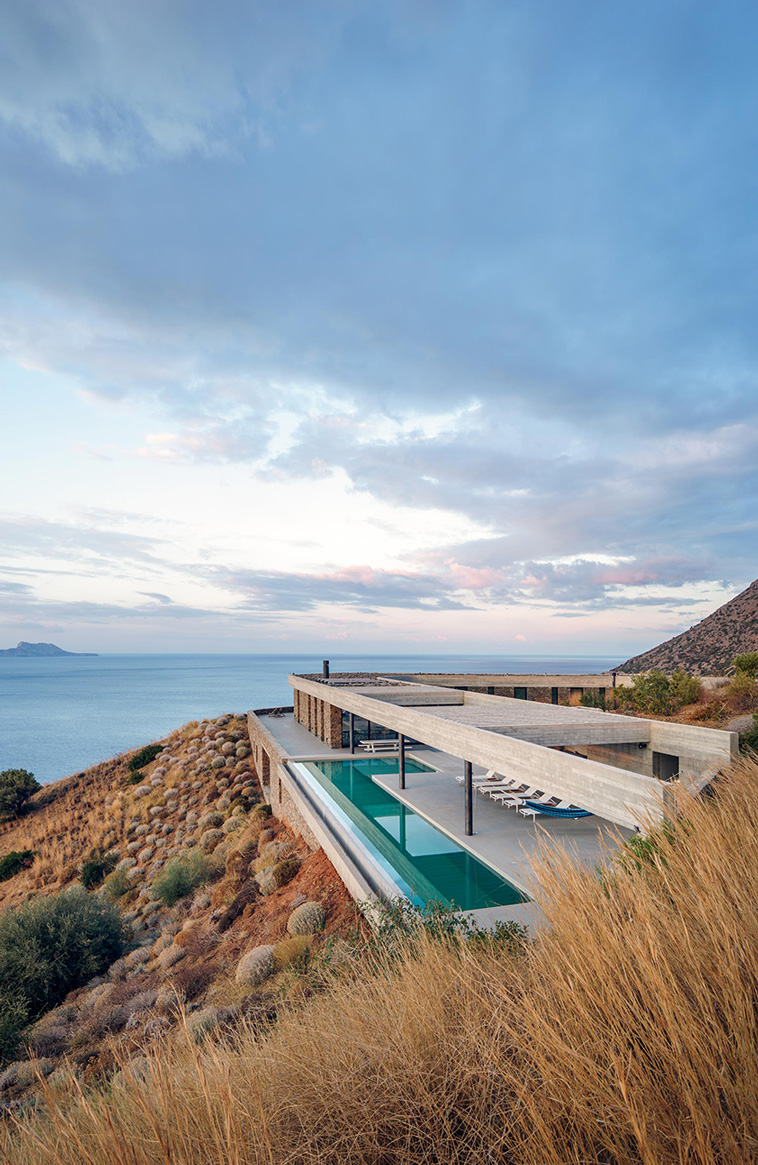
The Hourglass Corral is a house located in the Cycladic island of Milos. It is also the most recent addition of “Voronoi’s corrals”, a project that began ten years ago and now encompasses a territory of about 90.000 m².

UCCA Dune Art Museum, China
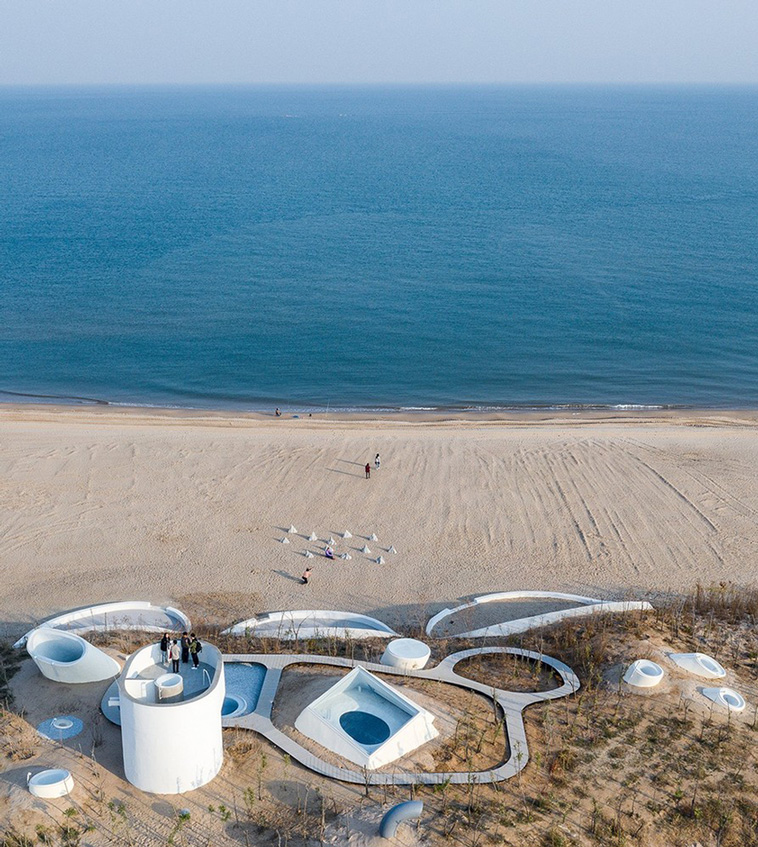
The Lap Pool House, Tinos, Greece / Aristides Dallas Architects
The house in Tinos, inspired by the cavities and ledges of the rocks, emerges from the natural landscape as a man-made cave, re-creating spatial points of exposure and introversion. The entrance is found in the back of the building, through an earth crack, while different cuts in the roof allow light and air to enter the building. The water in the pool contrasts with the rocky texture of the bare concrete as a translation of the interactions between natural elements.
